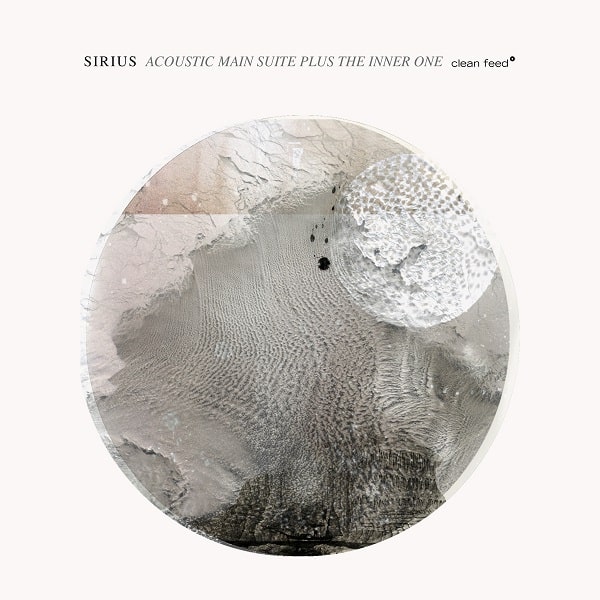
By Stef
Here is one more album for which to applaud the Clean Feed label. I think Pedro Costa is one of the best scouts of good music around, and at the same time willing to give unheard voices a chance.
The band is called Sirius, but it's actually just two guys, Yaw Tembe on trumpet and Mister Trinité (Franciso Trindade) on percussion.
Yaw Tembe is a 28-year old from Swaziland, but living in Portugal, and amonst others member of the IKB Ensemble, one of minimalist improviser Ernesto Rodrigues' bands, or the Variable Geometry Orchestra. or even Zarabatana, all bands reviewed earlier on this blog. He is also a sculptor, video artist, and does projects with theater.
Mister Trinité is 70 years old, who lived in France for many years and returned to Portugal with a good deal of new insights to share with other musicians in Portugal.
Their duo album is exceptional. It brings sparse sounds, with lots of reverb and resonance for the trumpet, high-pitched and volatile, supported by the percussion that does not provide rhythm as much as accents. Rob Mazurek comes to mind at times, but also Bill Dixon, both in their more limited line-ups. There is no sense of urgency. Just a calm decisiveness to enjoy the beauty of sounds. It is the sound of dawn. The song to welcome the day. An ode to beauty and life. The sound of unencumbered freedom. Pure being. Pure postivism. An almost wise innocence. A conscious striving for simple and profound aesthetics. A spontaneous outburst of inner depth. That's how it sounds.
The last track is a 10-minute solo trumpet piece that even lifts the album a notch higher. It expresses a kind of longing, of deep melancholy.
We have quite a list of "trumpet drums duets" in our reviews, but few are as light, open-textured, joyful, melancholy and spiritual as this one.
And all that is not bad for a first album as a leader (for both men, actually).
Mister Trinité is 70 years old, who lived in France for many years and returned to Portugal with a good deal of new insights to share with other musicians in Portugal.
Their duo album is exceptional. It brings sparse sounds, with lots of reverb and resonance for the trumpet, high-pitched and volatile, supported by the percussion that does not provide rhythm as much as accents. Rob Mazurek comes to mind at times, but also Bill Dixon, both in their more limited line-ups. There is no sense of urgency. Just a calm decisiveness to enjoy the beauty of sounds. It is the sound of dawn. The song to welcome the day. An ode to beauty and life. The sound of unencumbered freedom. Pure being. Pure postivism. An almost wise innocence. A conscious striving for simple and profound aesthetics. A spontaneous outburst of inner depth. That's how it sounds.
The last track is a 10-minute solo trumpet piece that even lifts the album a notch higher. It expresses a kind of longing, of deep melancholy.
We have quite a list of "trumpet drums duets" in our reviews, but few are as light, open-textured, joyful, melancholy and spiritual as this one.
And all that is not bad for a first album as a leader (for both men, actually).
No comments:
Post a Comment
Please note that comments on posts do not appear immediately - unfortunately we must filter for spam and other idiocy.